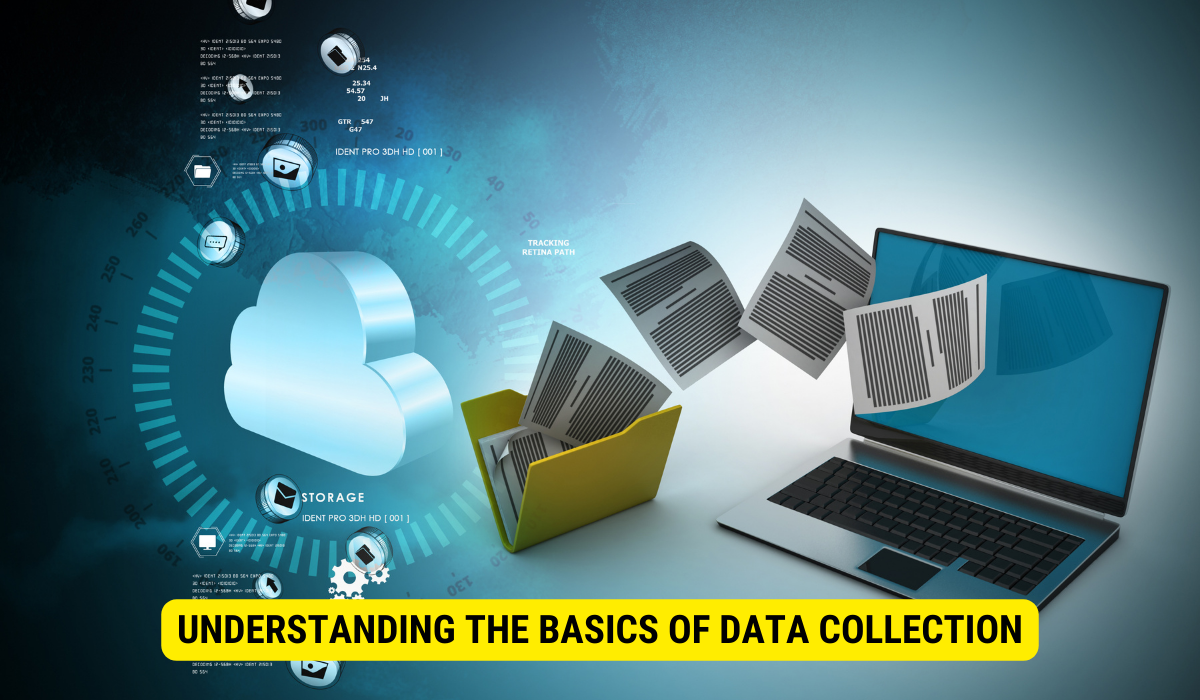Yes, privacy policies are required when you collect data to ensure legal compliance, build consumer trust, and provide transparency about how the data is used, stored, and protected.
Data collection has become an integral part of the digital world. Businesses and organizations collect vast data daily, from online transactions to website analytics. However, with the rising concerns about privacy and data protection, the need for privacy policies has become increasingly apparent. Together, we will explore the basics of data collection, the importance of privacy policies, the legal requirements surrounding them, the consequences of not having a privacy policy, and how to create an effective one to ensure compliance and build consumer trust.
Understanding the Basics of Data Collection
Data collection is the process of gathering and storing information for various purposes. It involves collecting both personal and non-personal data from individuals. Personal data refers to any information that can directly or indirectly recognize a person, such as their name, address, email, or IP address. On the other hand, non-personal data is anonymous and cannot be used to identify individuals.
Data collection can take different forms, such as online forms, cookies, tracking pixels, or interactions with mobile applications. These methods allow businesses to understand user behavior, improve services, personalize marketing efforts, and make data-driven decisions.
What is Data Collection?
Data collection refers to the process of gathering and storing information for various purposes. It involves collecting both personal and non-personal data from individuals. Personal data refers to any information that can directly or indirectly identify a person, such as their name, address, email, or IP address. On the other hand, non-personal data is anonymous and cannot be used to identify individuals.
Businesses can gather a wide range of information regarding data collection. Some common types of data collected include:
- Basic contact information: This includes names, email addresses, phone numbers, and physical addresses.
- Demographic information: This includes age, gender, occupation, and income level.
- Website usage data: This includes the pages visited, time spent on a page, and actions taken.
- Transactional data includes purchase history, order details, and payment information.
- Geolocation data: This includes the physical location of a device or user.
Gathering data is pivotal for modern enterprises, offering rich insights that shape decisions and enhance client interactions. By amassing personal and general data, companies gain a deeper comprehension of their prospective audience, discern prevailing trends, and adapt their offerings to align with consumer preferences.
For instance, by obtaining essential contact details, companies can curate a customer database, facilitating them to initiate specific marketing strategies or deliver tailored client assistance. Data on demographics aids businesses in segmenting their consumers and devising ads that connect with distinct demographics.
Data about website interactions reveals how visitors engage with the site, the most frequented pages, and the duration of each visit. This knowledge enables enhancements in site structure and user engagement, fostering higher conversion rates.
Data from transactions is especially precious for firms in the online retail sector. By reviewing past purchases, order specifics, and payment data, companies can pinpoint user inclinations, suggest apt items, and individualize the online shopping journey.
Data about user locations benefits firms operating across varied regions or those with brick-and-mortar establishments. It paves the way for location-specific marketing, local promotional endeavors, and analysis of in-person visits to refine store placements.
Businesses must collect data ethically and responsibly, ensuring compliance with relevant protection laws and regulations. This includes obtaining proper consent from individuals before collecting their personal data, implementing security measures to protect data from unauthorized access, and allowing individuals to opt out of data collection.
In conclusion, data collection plays a vital role in modern businesses. By collecting and analyzing personal and non-personal data, businesses can gain valuable insights, improve their products and services, and make data-driven decisions that drive growth and success.
The Importance of Privacy Policies
Privacy policies play a crucial role in data collection practices. They serve as a transparent and informative tool that outlines how businesses collect, use, store, and protect the data they gather from individuals. Privacy policies are essential for building trust and establishing a fair and ethical relationship between businesses and customers.
Defining Privacy Policies
A privacy policy serves as a legal statement that clarifies how a company accumulates, processes, shares, and safeguards both personal and general data it collects. It informs individuals about their rights and options regarding their information, guaranteeing clarity in data management methods.
Privacy policies aren’t merely procedural; they aim to safeguard the confidentiality and safety of individuals’ details. By transparently outlining the company’s data practices, these policies enable individuals to decide knowledgeably about providing their information.
Moreover, privacy policies are not one-size-fits-all. They should be tailored to the specific needs and practices of each business. This customization ensures that the policies accurately reflect the data collection practices of the business and comply with applicable laws and regulations.
The Role of Privacy Policies in Data Collection
Privacy policies play a significant role in data collection practices as they:
- Inform individuals about the types of data being collected.
- Clarify the purposes for which the data is collected.
- Provide details about how the data is stored and protected.
- Explain how individuals can exercise their rights regarding their data.
- Inform individuals about any third-party sharing of data.
- Establish the legal framework for the Collection and processing of data.
Privacy policies help individuals understand the scope of the personal information being gathered by clearly outlining the collected data types. This transparency empowers individuals to make informed decisions about sharing their data and allows them to assess the potential risks and benefits.
Furthermore, privacy policies specify the purposes for which the data is collected. This information is crucial as it allows individuals to evaluate whether their data is being used in a manner that aligns with their expectations and preferences. It also helps prevent the misuse or unauthorized access to personal information.
In addition, privacy policies provide details about how the data is stored and protected. This includes information about the security measures implemented by the business to safeguard the data from unauthorized access, loss, or theft. By knowing how their data is protected, individuals can have peace of mind and trust that their information is safe.
Privacy policies also explain how individuals can exercise their rights regarding their data. This comprises the right to access, correct, or delete their personal information. By providing clear instructions on exercising these rights, privacy policies empower individuals to take control of their data and ensure its accuracy and relevance.
Moreover, privacy policies inform individuals about any third-party sharing of data. This includes disclosing whether the business shares data with service providers, partners, or third parties. By being aware of such sharing practices, individuals can make informed decisions about sharing their data and evaluate its potential risks and benefits.
Lastly, privacy policies establish the legal framework for collecting and processing data. They ensure businesses comply with laws and regulations, such as data protection and privacy. This compliance helps build trust and confidence among individuals, knowing their data is handled lawfully and responsibly.
Legal Requirements for Privacy Policies
Various laws and regulations govern privacy policies to protect individuals’ data rights. Here are two of the most notable legal requirements:
General Data Protection Regulation (GDPR)
The GDPR is an extensive regulation focused on data protection relevant to entities managing the personal information of individuals within the European Union (EU). This regulation necessitates that businesses possess a clear privacy guideline detailing their data accumulation and handling methods. Additionally, under the GDPR, businesses must secure clear approval from individuals before gathering their information. It also bestows individuals with specific rights, including the ability to access their data and the option for their data to be erased.
California Consumer Privacy Act (CCPA)
The CCPA is a notable privacy legislation in California, bestowing consumers with specific privileges related to their personal data. It mandates companies to present a transparent and prominent privacy statement detailing the types of data gathered, the reasons for its Collection, and any external entities it might be shared with. Additionally, the CCPA allows consumers the choice to decline the selling of their private details.
The Consequences of Not Having a Privacy Policy
The absence of a privacy policy can have severe consequences for businesses. Let’s explore two significant impacts:
Legal Implications
Not having a privacy policy can expose businesses to legal risks and penalties. In data breaches or misuse of personal information, regulatory authorities can levy fines and penalties. Additionally, individuals may file lawsuits for privacy violations, which can lead to reputational and financial damages.
Impact on Consumer Trust
Without a privacy policy, consumers may perceive a lack of transparency and trustworthiness, resulting in a loss of customer confidence. Privacy policies are essential for establishing security and demonstrating a commitment to protecting individuals’ data.
Creating an Effective Privacy Policy

Creating a well-crafted privacy policy is vital for complying with legal requirements and earning consumer trust. Here are some key elements to include in your privacy policy:
Key Elements to Include
A comprehensive privacy policy should cover the following aspects:
- Information about the types of data collected.
- The purpose and legal basis for data collection.
- Details about data storage and security measures.
- Individuals’ rights regarding their data (e.g., the right to access, correct, and delete).
- Any third parties with whom the data is shared.
- Cookie usage and tracking technologies.
- Updates to the privacy policy.
Updating and Maintaining Your Privacy Policy
Privacy policies should be regularly reviewed and updated. As technology and data collection practices evolve, ensuring that your policy reflects current practices and legal requirements is crucial. Communicate any changes to your users and provide them the means to review the updated policy.
Key Takeaways
- Data Collection Defined: Data collection involves gathering personal and non-personal data from individuals for various purposes.
- Privacy Policies are Essential: They are pivotal in detailing how businesses collect, handle, and secure the gathered data.
- Legal Compliance: Regulations like GDPR and CCPA make it obligatory for businesses to have privacy policies, ensuring data protection rights are upheld.
- Consumer Trust: A clear privacy policy boosts consumer trust, ensuring they understand and consent to data collection practices.
- Regular Updates: Privacy policies should be updated regularly to reflect changes in data practices and legal requirements.
FAQs
What defines a privacy policy?
A privacy policy is a formal statement that explains how enterprises acquire, handle, share, and protect the information they collect.
Why are privacy policies important for businesses?
They provide transparency, establish user trust, and ensure data protection laws compliance.
What types of data can businesses collect?
Businesses can collect personal data (like names and email addresses) and non-personal data (which cannot identify individuals).
What legal frameworks necessitate having privacy policies?
Laws like the General Data Protection Regulation (GDPR) and the California Consumer Privacy Act (CCPA) mandate that companies establish privacy policies.
What are the consequences of not having a privacy policy?
Businesses may face legal penalties, financial damages, and a loss of consumer trust.
Conclusion
Privacy policies are indispensable in the digital era. They serve as a bridge of trust between businesses and consumers, outlining how personal and non-personal data is collected, used, and protected. Adhering to privacy regulations and maintaining an up-to-date policy fosters trust and safeguards businesses from potential legal implications.
